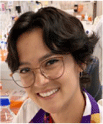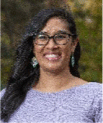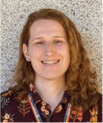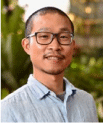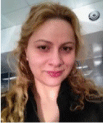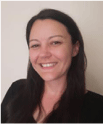New committee to guide ASM’s diversity and inclusion strategy
Yogitha SrikhantaThe ASM would like to introduce the newly appointed members of ASM’s inaugural Equity, Diversity, and Inclusion (EDI) Committee. The ASM is committed to supporting an inclusive, diverse and thriving microbiology sector, one in which all participants are valued and respected.
The EDI committee comprises seven members whose role will be to oversee ASM equity, diversity and inclusion strategies and will advise on what the ASM can do to create programs, events and a workplace that are fair, accessible, flexible, inclusive and in which unlawful discrimination, bullying, harassment or victimisation are not tolerated. The committee will ensure that our policies and practices enable inclusion toward positive and sustainable change in Australian microbiology and can be contacted directly at edicommittee@theasm.org.au.
Our committee members will strive to represent our diverse membership including people of different career stages, diverse genders, sexes and sexualities, indigeneity, those who are neurodiverse, those who have a disability, people of colour, those with different cultural, linguistic and religious backgrounds, and our rural ASM members.
Nuala Ellaby (she/her) is a Master of Medical Research candidate at the Institute for Glycomics, Griffith University. As the Queensland State Branch member of the EDI committee and a proud LGBTQIA+ woman, she hopes to promote a diverse and inclusive environment within ASM at the state and national level.
Dr Zahra Islam (she/her) is an early-career postdoctoral researcher within the ARC Research Hub for Smart Fertilisers at The University of Melbourne and is the Victorian State Branch representative. She aims to bring her experience as a 2nd generation Australian, women of colour to help to foster an inclusive society of microbiologists as well as champion underrepresented communities.
August Mikucki (they/she) is a final year PhD candidate at the University of Western Australia and a research assistant at the Telethon Kids Institute and the Western Australian State Branch representative. They aim to use their own experience as a queer trans woman to help make microbiology in Australia a safe and rewarding place for people of all backgrounds and experiences.
Dr Gaofeng Ni (he/him) is a postdoctoral research fellow at the Greening Lab of the Biomedical Discovery Institute, Monash University. He aims to foster an inclusive society of microbiologists across various backgrounds and career stages, as well as to advocate for communities whose voices are not heard, drawing strength from his experience as a man of colour, and a first-generation immigrant in Australia.
Dr Anahit (Ani) Penesyan (she/her) is a Research Fellow at the ARC Centre of Excellence in Synthetic Biology, Macquarie University and the New South Wales and Australian Capital Territory Branch representative. Ani firmly believes that promoting equity, diversity and inclusion in science is essential for creating a more vibrant and equitable scientific community that can tackle complex challenges with a broader range of perspectives and talents.
Dr Yogitha (Yogi) Srikhanta (she/her) is a mid-career postdoctoral researcher based at the Biomedical Discovery Institute, Department of Microbiology, Monash University. As chair of the EDI committee, she aims to bring her experience as a woman of colour to build a more diverse microbiology community in Australia and ensure all voices are heard.
Meghan Zadow (she/her) is a postgraduate student in the Malaria and Toxoplasma Biology group at the University of Adelaide and is the South Australia and Northern Territory Branch representative. Having come into STEM through a ‘non-traditional’ pathway, she is passionate about equity and accessibility in academia and the creation of environments where everyone has the tools and support they need to thrive.


